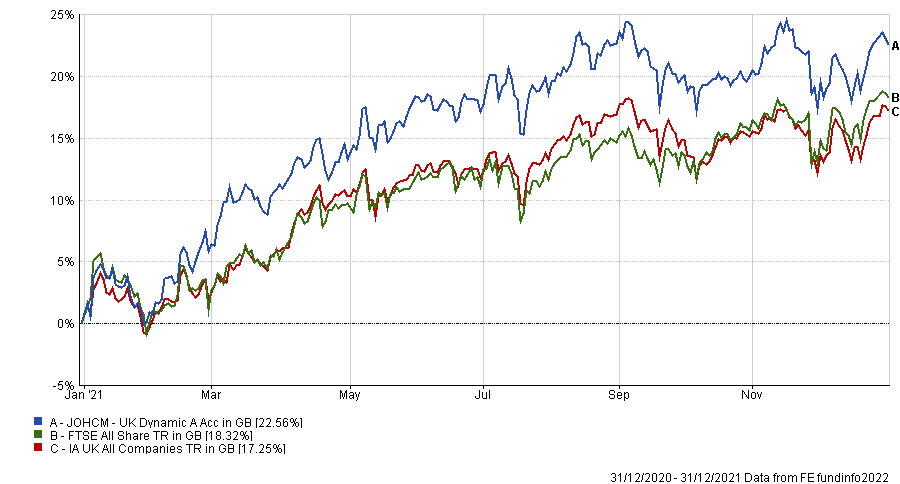More fund managers and investors need to stand up and defend against unreasonable bids for their stocks, regardless of their position size, according to JOHCM UK Dynamic fund manager Alex Savvides.
Takeover activity in the UK reached record highs last year with, with more companies than ever taken off the stock market by private investors. In 2021 there were 28 completed deals, well above the average of between four and six.
During that time Savvides’ own fund experienced an unusually high amount of takeover activity, with 10 of his 40 holdings (around 25%) bid for last year.
Some of these deals did not reflect the potential of the companies though, according to Savvides, who openly disputed the bids for several stocks in his own fund.
This was the case for supermarket chain Morrisons, property firm St Modwen and media conglomerate DMGT, which all attracted bids below their true value, he said,
Previously, the manager told Trustnet that he had faced some “lonely” battles fighting for a better figure. In all three cases Savvides said that the bid was revised upwards to a better price “but it was pretty much us that did it alone”.
The JOHCM manager said it was the responsibility of all shareholders to fight for a “fair” price, but not enough stepped up to that responsibility.
He said that this type active stewardship was not matched across his peers and he called on them to take a more “active interest in the value that a company can create”.
Regardless of whether a manager is a 0.5%, 5% or 15% shareholder he said they have a “bigger role to play” in defending the value of a company for the sake of investors and highlighting the areas where value is not as widely recognised.
“I think that's important and we take that role very seriously.”
It was not just up to fund houses to do this, Savvides said, but small and boutique names as well. For him, size should only be equated with responsibility when it came to percentage ownership, whereby “the larger the percentage ownership, the more incumbent it is on them to act in a in a more responsible way and with effective, active stewardship”.
“I’ve had the same mindset when the UK Dynamic fund was £200m to now when it is over £2bn. You don’t hide behind ‘Oh, I can't do this because our voice isn't big enough’. Once you start asking questions and engaging you will be amazed at the response you get from management,” he said.
Investors can also have a say in this too via annual general meetings (AGMs) as equity owners have a right to vote on matters which directly affect their stock ownership, including M&As.
In some cases, individual shareholders can combine to make the majority of a stock’s register, or a large proportion of it, and these votes could be crucial if banded together.
Some investment platforms have made shareholder voting a default option to encourage more investors to utilise this tool.
M&A is a normal function of markets but there can be direct implications on a fund’s returns if its stocks are bid for.
Savvides said: “Let's investigate that word lucky. You are unlucky if an asset that you think can deliver you 100% or 200% returns over five years gets bid for at a 40% premium at the beginning of that journey. That is bad luck.”
A company being taken off the stock market this early on effectively means investors will not be able to share in the expected returns, he explained.
When that happens the manager has to “go out and try to find another asset that can deliver me 200% plus”, Savvides said, recycling the cash elsewhere.
But it is not always a bad thing as successful bids can also provide an “immediate” boost to returns if a company is bid for on a 30-50% premium.
This type of M&A activity in the fund does not appear to have impacted its returns during 2021, with the portfolio outperforming its peers and the benchmark with a total return of 22.6%.
Performance of fund vs sector and benchmark in 2021

Source: FE Analytics
It recently reopened to new investors after being soft closed since December 2019 when it reached its size cap. Since it launched in 2008 it has made a total return of 238.3%, almost double the average IA UK All Companies fund (132.6%) and the benchmark (131.8%).




